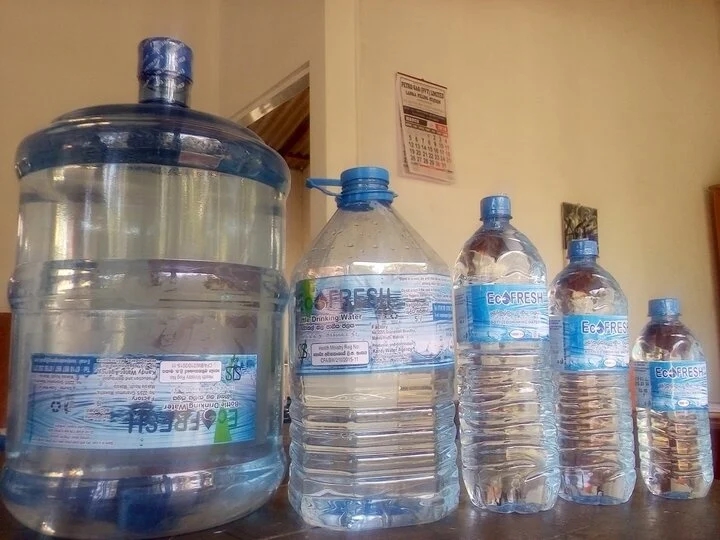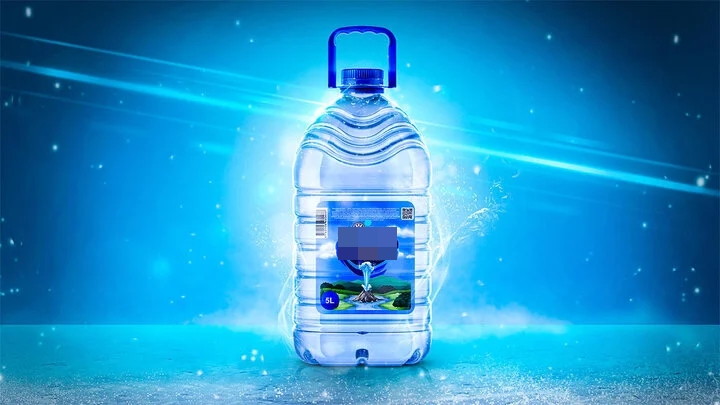Bottled water is a popular product in today’s world, especially for group living due to its convenience. However, safety is a primary concern, and understanding how long it remains consumable after opening is crucial.
How long can bottled water be stored once opened?
While sealed bottles can be safely consumed for years, opening the container significantly reduces its shelf life. When exposed to air, the surrounding environment, and contact with hands and mouths, the water’s safety is compromised.
Generally, the shelf life of bottled water or mineral water is one year, but the storage period after opening is relatively short. It is recommended not to consume it beyond this timeframe.

How long can bottled water be stored after opening? (Photo: Svauto)
Typically, unopened bottled water, when stored correctly, has a shelf life of about six months. If the water source is natural, there’s no need to worry about expiration, but treated water is best consumed within six months due to the reaction of carbon dioxide in the air with the water, making it acidic.
Therefore, six months is the ideal period for bottled water to maintain its quality and safety for consumption. Beyond this, the water’s quality changes and may pose health risks.
For opened bottled water, the maximum storage period is 15 days, but it is advisable to consume it within seven days. Once the bottle is opened, the water inside is exposed to air and susceptible to bacterial contamination. Prolonged storage may result in bacterial and viral infections, leading to poor water quality, an unpleasant odor, and potential health hazards.
It is recommended to consume mineral water quickly after opening for maximum purity. If necessary, store opened bottles in the refrigerator to slow bacterial growth. According to experts at Still Tasty, continuously chilled water can maintain its quality for four to six days after opening.
Proper Bottled Water Storage

The shelf life of bottled water largely depends on storage conditions and methods. Improper storage can reduce the shelf life to less than six months. (Photo: Elkelindenthal.de)
The shelf life of bottled water is heavily dependent on storage conditions and methods. Improper storage can reduce the shelf life to less than six months.
Bottled water should be stored in cool, dry places, away from direct sunlight. Heat can cause the water to warm, allowing toxic chemicals from the bottle to leach into the water.
Ensure the storage area is well-ventilated, clean, and free from standing water to prevent bacterial reinfection.
Always read the usage instructions and expiration dates to ensure you’re consuming the highest quality water.
Advantages and Disadvantages of Bottled Water
Bottled water is a convenient way to provide water for individuals, restaurants, and cafes, among other uses. It is packaged in bottles or jugs for easy transportation, storage, and consumption.
Advantages
– Bottled water is highly convenient. It is readily available at grocery stores and water distributors for immediate consumption without the need for additional filtration.
– The packaging makes transportation and handling easy and convenient.
– Various types of bottled water are available, including mineral water and purified water, in different volumes ranging from 5 to 20 liters, catering to diverse preferences and needs.
However, not all bottled water brands in the market offer genuinely clean and safe water for direct consumption. Therefore, it is advisable to opt for reputable brands to ensure the best quality. Avoid unlabeled products or those with extremely low prices.
Disadvantages
– Quality concerns: While reputable brands adhere to strict filtration processes, many bottled water businesses operate without meeting sanitary standards. As a result, the final product may not be safe for direct consumption, and it can be challenging for consumers to identify these issues.
– Costly: Maintaining a constant supply of bottled water for large groups or families over an extended period can be expensive.
– Environmental impact: Bottled water contributes significantly to plastic waste, affecting the environment if not properly recycled or disposed of.
According to VTC News
































